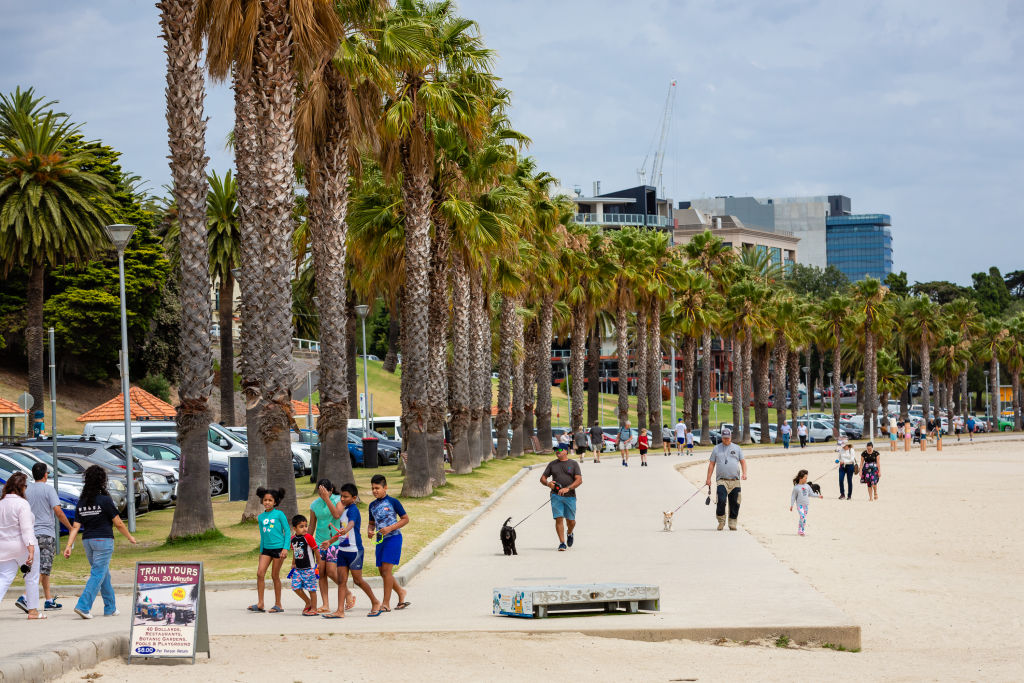As Aussies escape cities and move to the regions, experts question long-term viability

The number of people moving from capital cities to regional areas across Australia has boomed over the past year, as the country deals with the coronavirus pandemic. But the question now is whether all these moves will be permanent.
A new index, released on Monday, showed the number of Australians moving out of the big smoke to regional tree change and sea change areas had grown by 7 per cent in the March quarter — the highest levels since 2018.
The index compiled by the Commonwealth Bank of Australia and Regional Australia Institute used data which tracked bank customer address changes.
Major areas such as the Gold Coast in Queensland, which recorded an 11 per cent share of overall migration from capital cities, Geelong in Victoria, which had 4 per cent share and Wollongong in NSW with 3 per cent, had the biggest boosts to their population of ex-city dwellers.
Tasmania was incredibly popular for people leaving the big cities, seeing a 2 per cent share of total migration, but this rose by 88 per cent over the March quarter and 34 per cent since last year.
Noosa, known as a holiday spot for the well-heeled, recorded a 1 per cent share of migration from capital cities, but the number of people shifting jumped by a massive 23 per cent over the March quarter, and 49 per cent since last year.
“It’s a very, very interesting time to be a demographer,” said Chris McNeill, of urban solutions company Ethos Urban. “The surge in growth in the number of regional areas appears to be very real as land lot sales, which are a leading indicator, have really surged in a number of regional cities and towns.

“The big question in my mind is to what extent it will remain — is it a sugar hit or a permanent realignment?” he said. In short, there was no easy answer, he said.
While the pandemic and working from home had made a regional move more possible for those in corporate jobs, it would also remain to be seen just how long companies would allow this type of flexibility.
Regional areas closer to the capitals with good public transport, such as Geelong, would most probably see more people make a permanent move, because commuting would be easier, Mr McNeill said.
CBA executive general manager of regional and agribusiness banking Grant Cairns believed the move to regional areas would be permanent, as people looked to improve their lifestyles.
They were also looking for more affordable homes, which had been the main reason for a similar spike in moves from capital cities to regional centres in 2018.
“COVID-19 has caused people to reassess what is important and the big employers are being far more flexible now and more amenable to people working from home,” Mr Cairns said.
While people could work from home, regional cities were also seeing career opportunities open up as better infrastructure was built.
Wagga Wagga, NSW, had seen an expansion of the local hospital, meaning more medical staff were needed, while Toowoomba, Queensland, had the “newest airport in Australia”, according to the Toowoomba Wellcamp airport website, which also offered career opportunities, Mr Cairns said.
In fact, there were currently 60,000 job vacancies in regional areas, he said.
People who would normally have moved to a capital city for work were staying put in their regional towns.
“It’s not a surprise but it’s interesting to see a lot of people are staying in the regions because they can pursue a career there,” he said.
Regional Australia Institute chief executive Liz Ritchie said people’s ability to work from home from regional cities and towns had accelerated a trend evident before COVID-19.
“We’ve consistently seen the trend for a move to regional cities and it mobilises the nation to embrace the regional areas like never before because of the flexibility of work,” Ms Ritchie said.
“Regional people also don’t need to move because they’re thinking ‘if I can stay here away from everything [COVID-19] and study remotely then I will’.”
We recommend
We thought you might like
States
Capital Cities
Capital Cities - Rentals
Popular Areas
Allhomes
More








